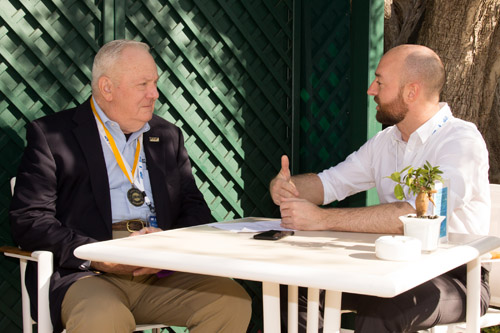Juli 06 2017 at 05:19AM
In 1969, the world was still clumsy and fat
Editorial
Well the new PMBoK Guide includes an Agile Practice Guide but this is not what concerns me. My concern is how people who deal with today’s projects think of yesterday’s approach to project management.
When I listen to my parents I sometime hear “In the past everything was better, and things got worse over time” or at least that the perception that some people have despite the many observable trends that indicate otherwise. Namely comparing the old structures of “classical” or “traditional” project management (with certain “bad” connotation) to the “modern” structures of Agile Project Management that are positively rated. I have had difficulties with the way some people differentiate these “two worlds”. It is probably clear that project management methodology has changed over time to suit certain types of projects but there is no need to draw a sharp line and negative conclusion of the “classical” project management and think of it as a thing of the past. What do you do in such a case? Well, what does a Daniel Hendling do in such a case? He meets with James (Jim) T. Snyder, a practitioner and a forefather of Clumsy and Fat Project Management, who founded PMI in 1969 and laid the foundation for Project Management standards in the shape of PMBoK Guide. So, I talked to Jim about the world of yesteryears and today’s and the difference between then and now. Then at the time of the moon landing and Woodstock when projects were planned and executed according to a plan. I asked whether project tasks were something that were planned sequentially and required changes to be registered formally to be subsequently accepted or rejected following a bureaucratic process. Jim’s answer was that projects have always been something of an uncertain nature and Project Management is always about implementing change in a specific time. He talked about projects from his early days in Project Management to today. I wanted to know from Jim how a picture of “classical methods” resonated with a sense of heaviness. His response was in three clear answers:
So, I talked to Jim about the world of yesteryears and today’s and the difference between then and now. Then at the time of the moon landing and Woodstock when projects were planned and executed according to a plan. I asked whether project tasks were something that were planned sequentially and required changes to be registered formally to be subsequently accepted or rejected following a bureaucratic process. Jim’s answer was that projects have always been something of an uncertain nature and Project Management is always about implementing change in a specific time. He talked about projects from his early days in Project Management to today. I wanted to know from Jim how a picture of “classical methods” resonated with a sense of heaviness. His response was in three clear answers:
- IT development projects were developed in a highly competitive environment and in aggressive timeframe to a fixed price and target dates. With these constraints it is necessary that a new approach is adopted for Scope Management.
- There is an increasing number of Project Managers and therefore the likelihood of having bad Project Managers is that much higher.
- Some decisions makers including Principles at companies’ executive levels are expected to make project related decisions but have no idea of Project Management or the nature of a project.



